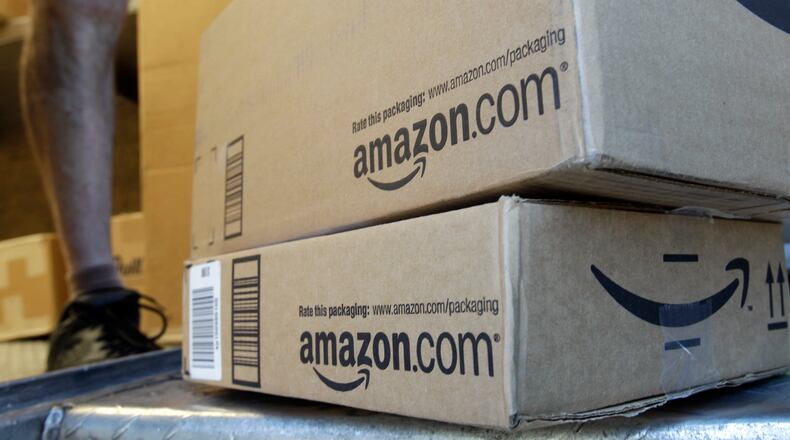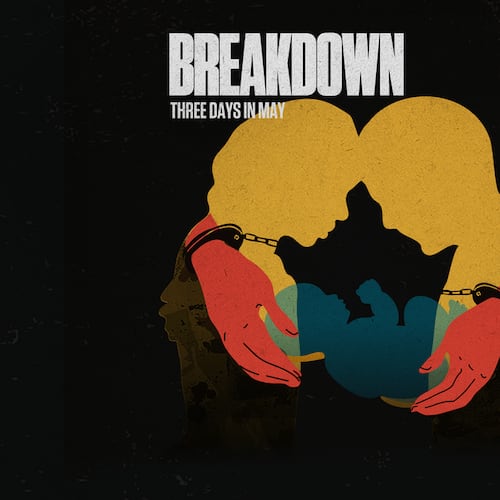Georgia shoppers at Amazon still aren’t paying sales tax, three weeks after the start of a state law designed to snag the money from the world’s biggest online retailer.
Shoppers buying items from Amazon.com to be shipped to Georgia should be prompted to pay sales tax under the law that took effect Jan. 1. But repeated checks of Amazon.com show that isn’t happening.
Amazon’s inaction could throw the state and the internet giant into a potentially costly battle that feeds into a national debate over whether all online retailers should be required to collect sales tax across the country.
Amazon has fought against charging its customers sales tax, leading to legal battles in some states and negotiations to delay the taxes in others.
If online-only retailers — the target of Georgia’s new law — collected the tax, it would add an estimated $16 million annually to Georgia’s already depleted coffers. The added tax would please owners of local stores, who complain that having to charge sales tax puts them at disadvantage.
Online stores already are required to collect sales tax in Georgia if they have a physical presence in the state. The new law expands the definition of physical presence. For example, Amazon would have to charge sales tax because it gets some customer traffic from other sites that have physical operations in Georgia.
Amazon is maintaining those relationships but is not collecting the tax, to the surprise of other website operators and legal experts.
Whether or when Amazon’s tax collection will begin is unclear. State officials are aware Amazon isn’t collecting the money, but they aren’t disclosing what they will do about it.
“Our expectation is that the law would be abided by,” said Ryan Teague, executive counsel to Gov. Nathan Deal.
Amazon did not return several phone calls and emails seeking comment. Eric Tresh, an Atlanta attorney who represents the company, declined to talk about Amazon’s position as regards Georgia, but said laws in various states that require online collection are “arguably unconstitutional.”
In states such as New York and Illinois, Amazon has challenged such laws, with mixed results. After reading Georgia’s version, Richard Pomp, a professor of law at the University of Connecticut School of Law, said the law was poorly drafted, because it does not require the activities that would require tax collection take place in Georgia.
“My inference is that they feel comfortable challenging the legislation, probably with good reason,” he said. “They probably feel comfortable not collecting. Georgia’s going to have litigation they probably didn’t expect.”
If Amazon continues to not collect the tax, the Georgia Retail Association may sue, said Rick McAllister, its president and CEO.
Because the law has been in effect for less than a month, taxes Amazon might owe are not yet required to be sent to the state. Newly registered companies file taxes on a monthly basis. Jud Seymour, a spokesman for the Georgia Department of Revenue, said the department does random audits across businesses, but he could not comment on plans to audit any specific company.
By provoking an audit, Amazon may set itself up to challenge the constitutionality of Georgia’s law, said John Swain, a professor of law at the University of Arizona’s Rogers College of Law. In a case dealing with catalogue companies, the Supreme Court found that in order to collect sales tax in a state, a retailer had to have a physical presence there.
A lawsuit in Georgia could affect the national landscape, Swain said. Amazon does or will collect sales tax in a dozen states, and national legislation that would require online sellers to collect local sales tax is wending its way through Congress.
In some states, Amazon has made deals to collect sales tax after a delay, often in exchange for bringing jobs to the state. Whether Georgia is in such conversations with the company is unknown. Several Georgia legislators and state employees said they had no knowledge of any negotiations.
Department of Economic Development spokeswoman Alison Tyrer said she could not confirm whether the state is in talks with Amazon, but said “sales tax collection is not a part of our negotiations with companies looking to locate or expand in Georgia.”
When Georgia’s law was put into place, it was widely expected that Amazon would end relationships with people like Chuck Shiflett, who earns a commission each time a shopper buys from the Amazon link on his websites, such as bowrenchdirect.com.
But Shiflett hasn’t heard from Amazon since last spring. Neither has Dave Andre, the founder and chairman of Cartera Commerce. Greg Hoffman, who owns a Georgia Internet marketing agency, received a newsletter from the company last week. It had no mention of the Georgia law.
“I’m completely mystified by what’s going on,” Andre said.
Other businesses, like Overstock.com and Vitacost.com, have ended their relationships with Georgia websites in order to avoid collecting the tax. It is odd that Amazon — the largest online seller — has not, said McAllister of the state retail association.
Some legal experts have speculated that Amazon’s ownership of Georgia-based Fabric.com — which does collect tax on Georgia residents — has affected Amazon’s willingness to fight the law.
Then again, maybe Amazon just likes its odds, said Pomp, with the University of Connecticut. “They may feel very comfortable they’re going to win this one.”
About the Author
Keep Reading
The Latest
Featured



